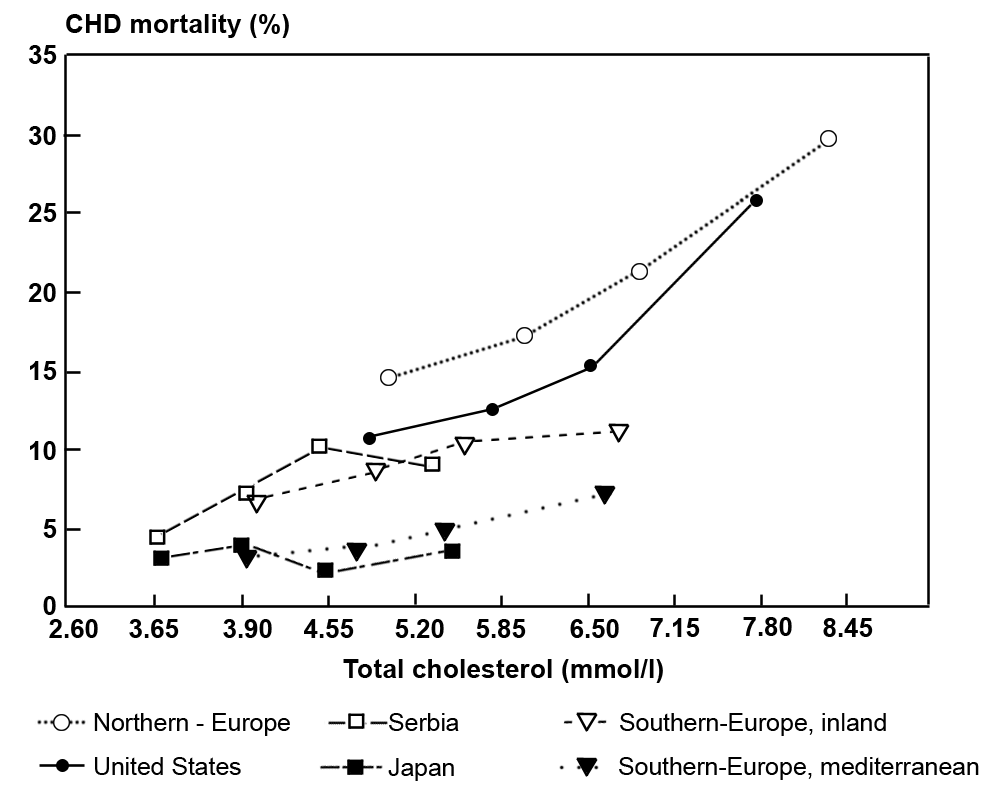High serum cholesterol and high CHD mortality
High levels of cholesterol in blood serum are associated with a high risk of CHD mortality in the different cohorts of the Seven Countries Study. Serum cholesterol levels in middle-aged men are a strong predictor of CHD risk mortality after 10 and 25 years of follow-up. Both past and recent serum cholesterol levels are related to 35-year CHD mortality, although the strength of the association diminishes with increasing age. Serum cholesterol is also related to 40-year CVD mortality in the US railroad cohort.
Associations are similar within cultures, but absolute risk varies between cultures
The relative risks of CHD mortality in relation to serum cholesterol level were similar in the different cohorts. Large differences in absolute CHD risk were observed among the cohorts, with high absolute risks in northern Europe and the United States and low absolute risks in Mediterranean southern Europe and Japan.

Graph: Serum cholesterol quartiles & 25-year CHD mortality rates – Seven Countries Study
Implication
The similar relative risks and different absolute risks of CHD among the cohorts imply that at the same serum cholesterol level in high-risk cultures, elevated serum cholesterol levels need to be treated more intensely than in low-risk cultures to achieve target levels and potential prevention.
References
- Keys et al. Harvard University Pres. ISBN: 0-674-80273-3, 1980:121-35
- Kromhout et al. Arch Intern Med 1988;148:1051-5
- Pekkanen et al. Am J Epidemiol 1992;274:131-6
- Verschuren et al. JAMA 1995;274:131-6
- Menotti et al. Eur J Epidemiol 2004;19:417-24
- Menotti et al. Eur J Epidemiol 2005;20:597-604
- Boshuizen et al. Am J Epidemiol 2007;165:398-409
- Menotti et al. Eur J Cardiovasc Prev Rehabil 2008;15:719-25
